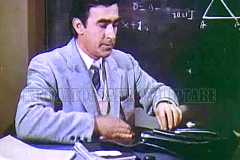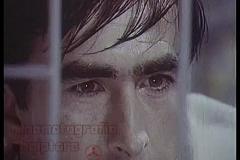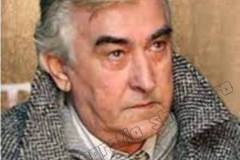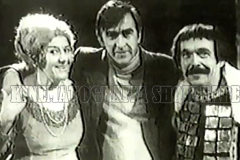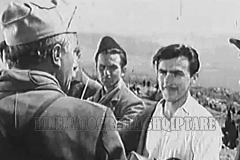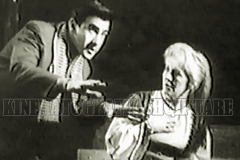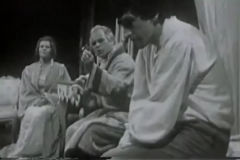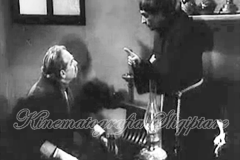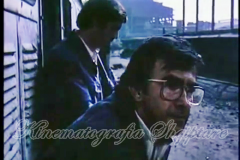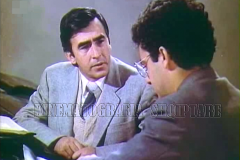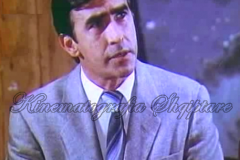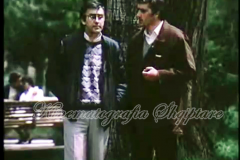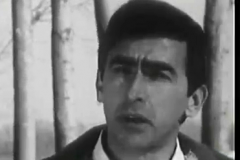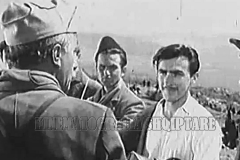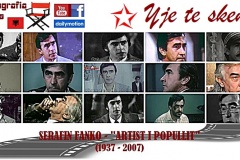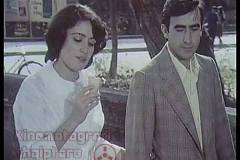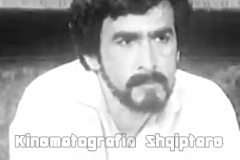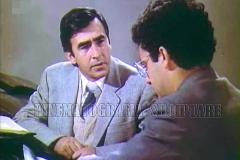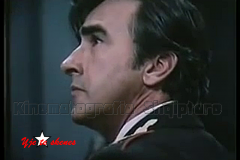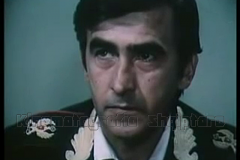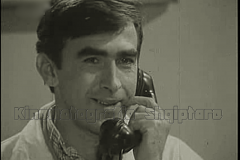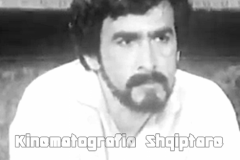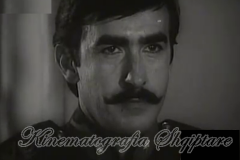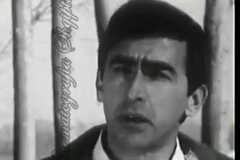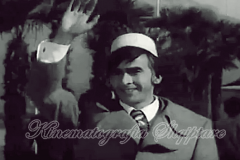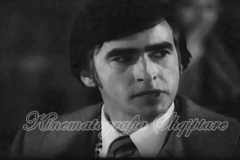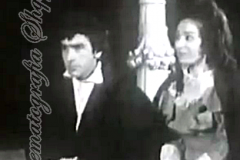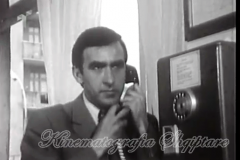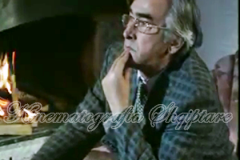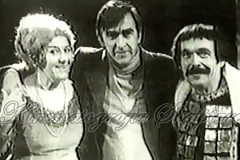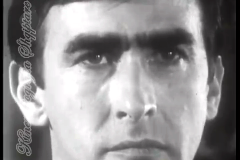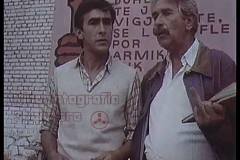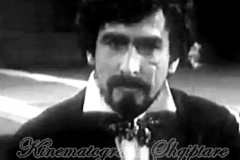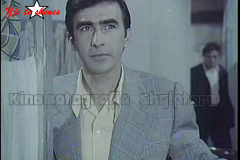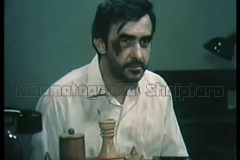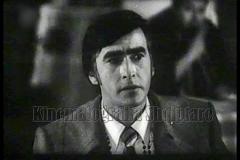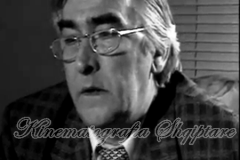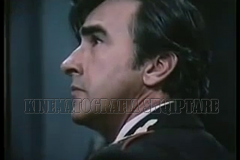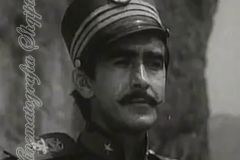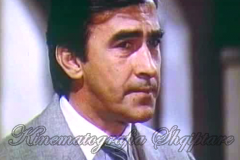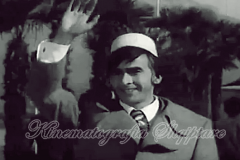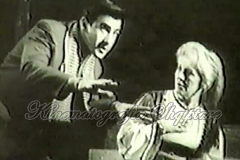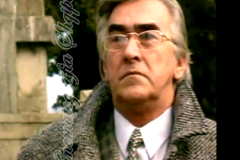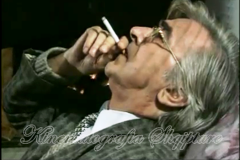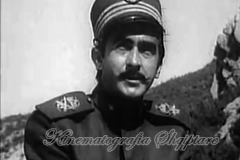Serafin Fanko
(May 24, 1937 – September 29, 2007)
Director, actor and “People’s Artist”.
Icon of the Albanian scene! Serafin Fanko, is not only one of the Icons of “Migjeni`s” of Shkodra, but also an Icon of the entire Albanian performing arts. During his life he excelled in acting, directing as well as in all the components that build a drama. Serafin Fanko was a spicy writer of the national drama, while throughout his artistic career he stood out for his elegance and interpretative power.
The “People’s Artist”, passed away on September 29, 2007 in Tirana, at the age of 70. He stands out not only as the author of Albanian drama, but also in his artistic career as a character actor and very potent in his acting. After graduating from the Artistic Lyceum “Jordan Misja” in Tirana, dramatic branch, he continued his studies in Prague, for three years at the Academy of Arts “Fam Famu”, for film direction, but the demolition of the famous socialist camp, forced him to return without finishing. the studies. He finishes them at the “Aleksandër Moisiu” Higher Institute of Arts in Albania.
Upon returning to the homeland, he started working as a director of the “Migjeni” Theater where he excelled in drama. During his 40-year career, Fanku has performed about 125 roles in cinema and theater and has won many awards and titles.
Born in Shkodër on May 24, 1937, the director of over 140 works seems not to have had an easy career path. His artistic beginnings began with piano lessons, then he followed a painting course, took up ballet, and then the field of performing arts, which made him known even outside the borders. He started his artistic career in 1953. It was an operetta, the libretto of which he wrote himself, without being a professional. Fanko was only 16-17 years old. This operetta was staged by the Shkodra Garrison. Later, he was engaged in theater, before specializing in directing. He worked on a show, which consisted of two comedies, one by Jovan Vujoshi and the other by Chekhov. While the first show that he put on the stage of the “Migjeni” Theater was after graduation, a drama by Fadil Kraja, “Fisheku ma paja”.
He then started in 1963 as an actor of the “Migjeni” Theater, immediately after his higher studies at the Institute of Arts. As an actor of “Miggen” he worked until the age of 66, playing about 30 roles, including his later acting engagement, when he was a director.
In the years ’66-’67, he specialized at the Academy of Arts in theater direction and at the same time was also a lecturer at the Academy of Fine Arts. From that time he worked for nearly 40 years as a director. Among the best performances in the “Migjeni” Theater can be singled out “Our Land”, “Council of Godfathers”, “Viti 61”, “Baca i Gjetajve”, “Song of Proud Pain”, “The Case of Blerta”, “The Happy Couple”, “Blood of Arbër”, “Investigation”, “Tale of Macbeth”, “Why”, “Walking through anxiety”, “What a moron”, “Invitation to dinner”, “Quo vadis” others.
In the television recording of “Zekthi”, which was called the first Albanian teledrama, directed by Albert Minga and cameraman Stefan Gajo, Serafin Fanku had the main role. He is the winner of many awards in national and international activities, among which the award for the drama “Quo Vadis” stands out.
Has realized 125 projects in Shkodër, Tirana, Skopje, Struga (in Albanian and Turkish languages). In 1980, he was invited to the Theater of Nations in Skopje, to stage the drama “Night” by the classic Arbër Josif Rela. Josif Rela was the director of the People’s Theater of Zara, one of the most prominent figures in Croatia.
The piece was shown many times, until it was banned by the Macedonian government at the time due to the political situation that Macedonia was going through on the threshold of separation from Yugoslavia. But later, in 1991, Kujtim Spahivogli and Serafin Fanku were honored on the occasion of the 40th anniversary of the theater by the Ministry of Culture of Macedonia with “Golden Plaques” for their contribution to raising the artistic level of the Theater of Nations in Skopje.
Then he worked with the Turkish theater on an adaptation of the novel “Why?” of Stereo Spase. At that time he was working with the Montenegrin troupe. After the drama “Quo vadis?”, which was awarded first prize as the best play and he himself as the best director at the National Festival of Theaters in 1997.
Directed at the People’s Theater of Montenegro and the drama “Order the last” by the Montenegrin author Aleksandra Bosnić, premiered on April 11, 1998. Then he returned to the stage of TK (National Theater), in 2005, with the drama “Father”, a work that was well received by the audience, but not it had the echo and glory of other works. In his artistic activity he collaborated with the Theater of Shkodra, Durrës, Tirana, Laç, Lezha. One of the characters that he played with all his zeal was the character of Zekthi. The figure of Zekthi brought by Fanko is so real that it seems as if he is talking to the character himself and not to the actor who plays him. Fanku has been involved in about 12 television and feature films.
His first film is “Fortuna” in 1959, although with only an episodic appearance in the ranks of the youth where they join the ranks of the partisans. Then “Fije ge priten” directed by Muharem Fejzon, in the role of Clark. Later, “The Fall of the Idols”, “The Stars on Drin”, “Decision”, “Spring did not come alone”, “Night without light”, “Days that brought spring”, (the role of Cubel Breca), “Emblem of the past”, etc.
In all of Fanko’s characters, the warmth that he gave to the characters is noticeable, which is related to his talent and intuition as a genuine artist. Each figure created by him has its own individuality, and at the same time the authenticity of the character.
Actor and director, scenographer and costume designer, “People’s Artist”, Serafin Fanko, was integrated for years in a wide nationwide space with his multidimensional work.
FILMOGRAPHY:
Fortuna (1959)
Cut threads – (1976). …….
The days that brought spring …. Cubel Breca
Stars on Drin – (1979) …. Lulzimi
Autumn’s reproaches – (1981) …. Professor Samiu
Decision – (1984) …. Filipi
Spring did not come alone – (1988) …. Professor
Some of the dramas that carry his signature: “Our land”, “Council of the Elders”, “Year 61”, “Baca i Gjetajve”, “The Song of Proud Pain”, “The Case of Blerta”, “The Happy Couple”, “The Blood of the Arbor”, “The Investigation”, “The Tale of Macbeth”, “Why”, “The Journey through Anxiety”, “Cmurosja” , “Dinner Invitation”, “Quo vadis”.
Previously published on Facebook – Albanian Cinematography, May 2014 and revised in the following years.
________________
Albanian Cinematography – since 2013
Follow us: Blog: https://albaniancinematography.blogspot.com/ Vimeo: Albanian Cinematography (vimeo.com) Facebook: https://www.facebook.com/ksh.faqjazyrtare Dailymotion: https://www.dailymotion.com/kinetografiashqiptareartisporti YouTube: https://www.youtube.com/channel/UCDRYQ5xCyGkfELm3mX8Rhtw
Discover more from Albanian Cinematography - Sport
Subscribe to get the latest posts sent to your email.

